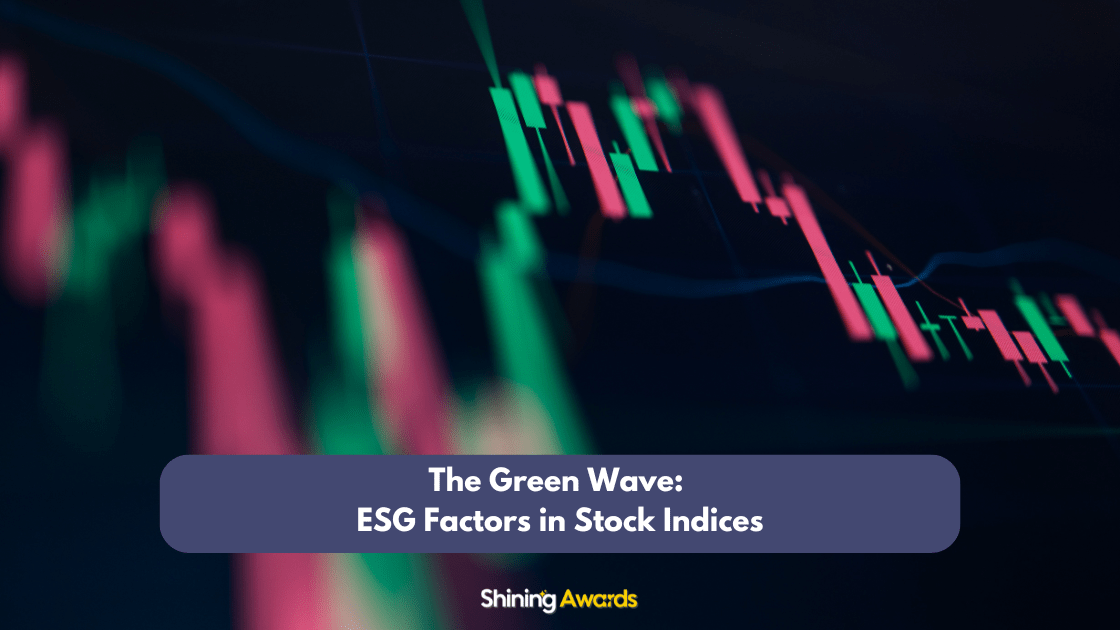
The Green Wave: ESG Factors in Stock Indices
ESG Factors in Stock Indices – Amidst the seismic shift towards sustainable investing, the integration of Environmental, Social, and Governance (ESG) factors into stock indices has emerged as a defining trend in the financial landscape. This article navigates the intricate terrain of ESG investing, delving into its environmental, social, and governance dimensions, exploring its evolution, and unveiling its implications for investors and corporations alike. If you wish to learn about investing with education companies, you might consider visiting this Homepage.
ESG Factors in Stock Indices

Understanding the Environmental Dimension
In grasping the environmental dimension within the context of ESG factors, it becomes evident that climate change stands as a pivotal concern. Corporations are increasingly recognizing the material impacts of environmental degradation on their operations and long-term viability.
The imperative to adopt sustainable resource management practices emerges not merely as an ethical consideration but as a strategic imperative driving efficiency gains and fostering innovation within industries.
Moreover, the burgeoning renewable energy sector presents both opportunities and challenges for businesses seeking to align their operations with environmental sustainability goals.
Navigating this landscape necessitates a nuanced understanding of how environmental factors intersect with corporate performance and market dynamics, compelling investors to scrutinize not just financial metrics but also environmental stewardship practices when evaluating investment opportunities.
Exploring the Social Dimension
Delving into the social dimension of ESG factors unveils a multifaceted landscape shaped by considerations of human capital management, community engagement, and supply chain ethics. In an era marked by heightened awareness of diversity and inclusion, companies are under increasing pressure to cultivate workplaces that foster talent diversity and promote equitable opportunities for all.
Concurrently, the imperative to engage meaningfully with local communities through philanthropic endeavors and social impact initiatives has become integral to corporate citizenship. Furthermore, ensuring ethical labor practices and upholding human rights standards throughout the supply chain has emerged as a non-negotiable requirement for companies aspiring to demonstrate social responsibility.
Beyond mere compliance, companies are realizing the intrinsic value of prioritizing social considerations to enhance brand reputation, mitigate operational risks, and fortify stakeholder relationships in an interconnected global economy.
Unveiling the Governance Dimension
The governance dimension of ESG factors underscores the importance of transparent and accountable corporate practices in safeguarding shareholder interests and preserving long-term value creation. Central to effective governance is the establishment of robust frameworks for transparency and accountability, ensuring that stakeholders have access to accurate and timely information regarding corporate performance and decision-making processes.
Board diversity and independence emerge as critical determinants of governance quality, with diverse boards offering broader perspectives and mitigating the risks of groupthink. Equally consequential is the alignment of executive compensation structures with sustainable performance metrics, incentivizing executives to prioritize long-term value creation over short-term gains. By adhering to sound governance principles, companies can instill investor confidence, foster trust among stakeholders, and enhance their resilience to market uncertainties.
The Evolution of ESG Integration in Stock Indices
The evolution of ESG integration in stock indices reflects a paradigm shift in investor preferences and market dynamics, with ESG considerations transitioning from niche to normative status. Methodologies for ESG index construction have evolved to balance objectivity and impact, leveraging a diverse array of metrics and screening criteria to identify companies with strong ESG performance.
Contrary to conventional wisdom, empirical evidence suggests that integrating ESG factors into investment strategies need not entail sacrificing financial returns. Instead, ESG integration has been shown to enhance risk-adjusted returns and mitigate downside risks, particularly in the context of increasingly turbulent markets.
As investor awareness and demand for ESG-aligned investments continue to grow, the evolution of ESG integration in stock indices is poised to reshape the investment landscape, catalyzing a more sustainable and resilient global economy.
Challenges and Opportunities Ahead
Navigating the path forward in ESG integration presents a tapestry of challenges and opportunities. From ensuring data quality and standardization to grappling with evolving regulatory landscapes, stakeholders face formidable hurdles.
Yet, within these challenges lie opportunities for innovation and collaboration. As awareness grows and momentum builds, addressing these challenges head-on can pave the way for a more sustainable and prosperous future, where ESG principles underpin every facet of the global economy.
Conclusion
In harnessing the power of ESG factors, investors and corporations alike stand poised to unlock a new frontier of sustainable value creation. As the green wave of ESG integration continues to swell, embracing responsible investing practices is not merely a choice but an imperative for navigating the complexities of today’s markets and shaping a more resilient and equitable future for all stakeholders.